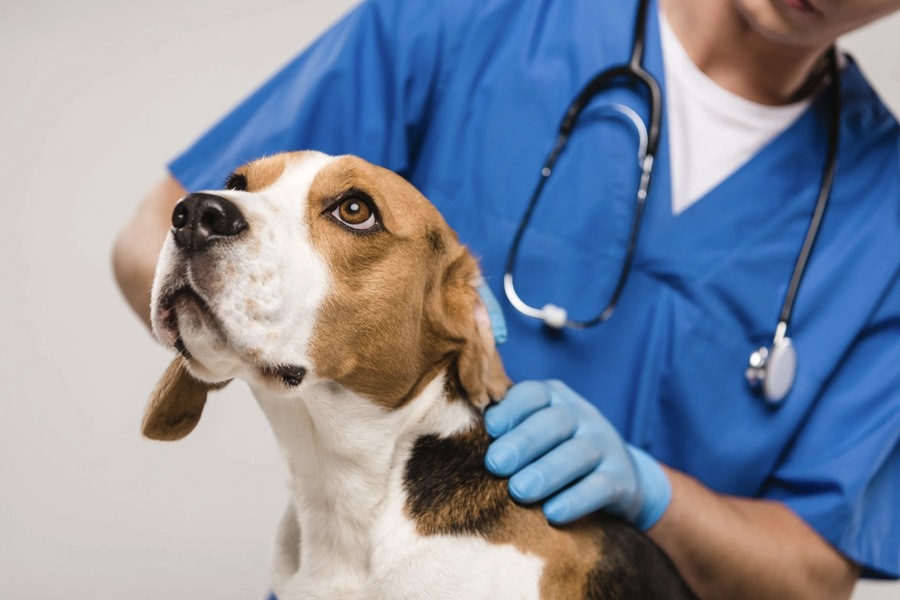Vaccination is a cornerstone of preventive veterinary medicine, aiming to protect dogs from a myriad of infectious diseases. However, the effectiveness of vaccines can vary significantly among individual dogs, and genetics is a critical factor influencing this variability. Understanding the interplay between canine genetics and vaccine effectiveness is essential for veterinarians, pet owners, and researchers. This article delves into how genetic factors can affect vaccine responses in dogs, with a particular focus on the context of Dubai and the UAE region.
The Role of Genetics in Vaccine Response
Vaccines work by stimulating the immune system to recognize and combat pathogens. However, the immune response to vaccines is not uniform across all dogs. Genetic differences play a crucial role in determining how well a dog’s immune system responds to vaccination. The Major Histocompatibility Complex (MHC), genetic diversity, and breed-specific traits are key genetic factors influencing vaccine response.
Major Histocompatibility Complex (MHC)
The MHC is a group of genes critical for immune system functioning. These genes are responsible for presenting pathogen-derived peptides to immune cells, initiating an immune response. Variations in MHC genes can lead to differences in how effectively the immune system recognizes and responds to vaccines. For instance, certain MHC alleles may present vaccine antigens more efficiently, resulting in a stronger immune response.
Genetic Diversity and Immune Response
Genetic diversity within a population can influence the overall effectiveness of vaccines. In highly diverse populations, such as mixed-breed dogs, there is a wider range of immune responses, which can lead to a more robust overall response to vaccination. Conversely, inbreeding and low genetic diversity, often seen in purebred dogs, can result in weaker immune responses and increased susceptibility to diseases despite vaccination.
Breed-Specific Variability
Different dog breeds have unique genetic makeups, which can affect their immune responses. For example, some breeds are known to have specific genetic predispositions that impact their health, including their response to vaccines. Breeds like the Rottweiler and Doberman Pinscher have been documented to have weaker responses to certain vaccines, necessitating additional booster doses or alternative vaccination strategies.

Canine Genetics and Vaccine Development
Understanding canine genetics is not only important for predicting vaccine responses but also for developing more effective vaccines. Researchers are working on tailoring vaccines to match the genetic profiles of different breeds better. This personalized approach to vaccination can enhance effectiveness and reduce the incidence of adverse reactions.
Adverse Reactions and Genetic Predisposition
Adverse reactions to vaccines, although rare, can occur and are sometimes linked to genetic factors. These reactions can range from mild (such as local swelling) to severe (such as anaphylaxis). Certain breeds are more prone to these adverse reactions due to their genetic predispositions. Identifying these genetic markers can help veterinarians make informed decisions about vaccination protocols and mitigate risks.
The Impact of the UAE’s Environment on Vaccine Effectiveness
The UAE, including Dubai, presents a unique environment that can influence vaccine effectiveness. Factors such as climate, prevalence of certain diseases, and the genetic diversity of the dog population in this region must be considered. The hot and arid climate of Dubai can stress dogs, potentially impacting their immune systems and altering their responses to vaccines.
Vaccination Practices in Dubai and the UAE
Dog vaccination Dubai is governed by local regulations and guidelines aimed at preventing disease outbreaks. The UAE Ministry of Climate Change and Environment provides detailed guidelines on animal health and vaccination requirements. These regulations ensure that pets, including dogs, are protected against common infectious diseases such as rabies, distemper, and parvovirus.
Challenges in Implementing Effective Vaccination Programs
One of the challenges in the UAE is the diverse dog population, which includes both purebred and mixed-breed dogs. This genetic diversity necessitates a tailored approach to vaccination. Additionally, the transient nature of the expatriate population in Dubai means that dogs from various parts of the world, with different genetic backgrounds and previous vaccination histories, must be integrated into local vaccination programs.
Importance of Genetic Testing
Genetic testing can play a crucial role in optimizing vaccination strategies. By identifying specific genetic markers that influence vaccine response, veterinarians can tailor vaccination protocols to individual dogs. This personalized approach can enhance vaccine effectiveness and minimize the risk of adverse reactions. Genetic testing services are increasingly available in Dubai, providing valuable tools for both veterinarians and pet owners.

Future Directions in Canine Vaccination
The field of canine vaccination is continuously evolving, with ongoing research aimed at improving vaccine efficacy. Advances in genomics and biotechnology hold promise for the development of next-generation vaccines that are more effective and safer. In the future, vaccines may be designed to target specific genetic profiles, offering personalized protection against infectious diseases.
Conclusion
Understanding the impact of canine genetics on vaccine effectiveness is vital for ensuring the health and well-being of dogs. Genetic factors, including MHC variations, genetic diversity, and breed-specific traits, play significant roles in determining how well dogs respond to vaccines. In regions like Dubai and the UAE, where the dog population is diverse and environmental factors are unique, a tailored approach to vaccination is essential. By leveraging genetic testing and ongoing research, veterinarians can enhance vaccination strategies, providing better protection for dogs and contributing to public health efforts.
For more detailed information on vaccination guidelines and requirements in Dubai and the UAE, you can visit the official UAE Ministry of Climate Change and Environment website.
Incorporating genetic insights into vaccination practices will not only improve outcomes for individual dogs but also help manage and prevent disease outbreaks in the broader canine population. As we continue to advance our understanding of genetics and immunology, the future of canine vaccination looks promising, with the potential for more effective, personalized, and safe vaccines.

Hockey fan, ramen eater, audiophile, Eames fan and typography affectionado. Working at the intersection of simplicity and sustainability to craft experiences both online and in real life. Let’s chat.



